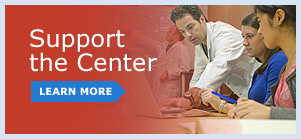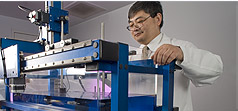Post Doctoral Fellows
Timothy M. Maul, PhD
Hartwell Fellow
University of Pittsburgh School of Engineering
Department of Bioengineering and The McGowan Institute for Regenerative Medicine
- 412-235-5218
- maultm@upmc.edu
Education
BS, Bioengineering, University of Pittsburgh, 2001
PhD, Bioengineering, University of Pittsburgh, 2007
Dr. Maul completed his PhD in the department of Bioengineering in 2007 under the guidance of Dr. David A. Vorp, PhD. His research was focused on the mechanobiology of stem cells, specifically looking at vascular differentiation. Through this work they discovered potential thresholds and mechanisms behind the response of stem cells to mechanical forces using morphometric assessments, immunohistochemistry, western blotting, and PCR.
During his postdoctoral fellowship, Dr. Maul has been focusing on two main projects. The first is a pediatric ventricular assist device destined for clinical use in infants and children. His role on the project has been to serve as the lead biomedical engineer for the preclinical animal studies. The second project, which is under the supervision of Dr. Wagner and Dr. Villanueva, is computational modeling of the molecular interaction between targeted microbubbles and the endothelial cells expressing the associated ligands. They are utilizing surface plasmon resonance, parallel plate video microscopy, and optical tweezer technology in order to obtain the biophysical constants that control the interaction between a receptor and ligand, which are fed into a stochastic model of microbubble adhesion under fluid shear stress. Using these stochastic models, they are guiding the design of the number and types of molecules arrayed on the microbubble to facility maximal binding in the desired target area.
Dr. Maul’s other areas of interest include clinical applications of biomedical engineering technology, including ventricular assist devices and extracorporeal membrane oxygenation (ECMO). He currently holds a position as an ECMO/VAD specialist at Children’s Hospital of Pittsburgh of UPMC, where he directly interacts with the clinicians to support patients on these devices as well as on research projects related to better management of anti-coagulation through multi-factorial analysis.


